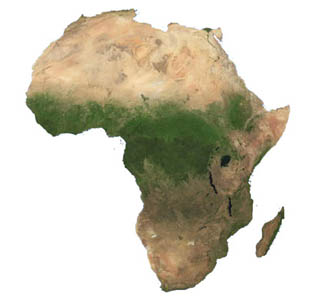Inflation soars on food, fuel prices; anti-poverty gains impacted
 Washington - Sharp increases in food and fuel prices will send inflation soaring to 12 per cent this year in sub-Saharan Africa, the International Monetary Fund said Wednesday.
Washington - Sharp increases in food and fuel prices will send inflation soaring to 12 per cent this year in sub-Saharan Africa, the International Monetary Fund said Wednesday.
Food prices have a large impact on inflation in this region, where most countries are dependent on food and fuel imports and are also grappling with pervasive poverty. Rising prices for imported food would have the largest impact on poverty in Gambia, Ghana, Mauritania and Swaziland, which have low incomes and are heavily-dependent on imports.
Experts cited the impact of high food costs on poverty as a major concern, as this could negate earlier gains made in anti-poverty efforts as well as put the social fabric of communities under tremendous strain.
Inflation is expected to increase from 7 per cent in 2007 to 12 per cent in 2008 in the region, before levelling off at 9.5 per cent in 2009, the IMF said in its semi-annual World Economic Outlook.
Overall economic growth in sub-Saharan Africa is projected to moderately decline in 2008-2009, but there will be important variations between countries, the IMF said. Growth is likely to dip from close to 7 per cent in 2007 to just over 6 per cent in 2008- 2009.
In South Africa, sub-Saharan Africa's largest economy, growth is expected to slow from 5 per cent in 2007 to about 3.5 per cent in 2008-2009. Of particular concern was a growing current account deficit in South Africa, which was 7.25 per cent in the second quarter of 2008.
The terms of trade in oil-importing countries would remain stable for the rest of 2008, as higher oil prices get offset by the increasing export prices of cocoa, cotton, coffee and metals.
The IMF said that oil-exporting countries in the region face the challenge of saving some of their revenue to ease inflationary pressures, as well as addressing vital health and infrastructure needs. (dpa)
